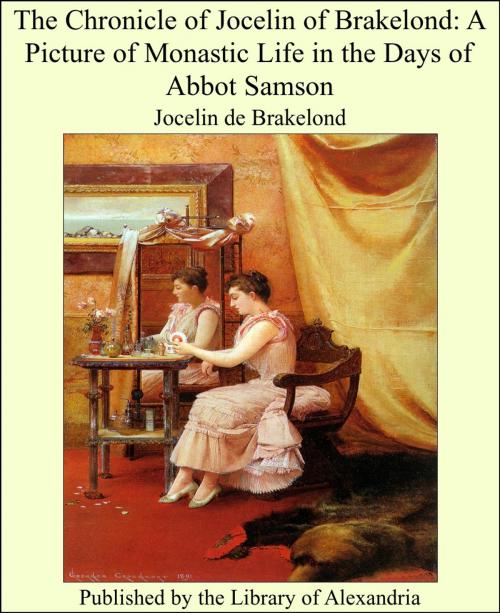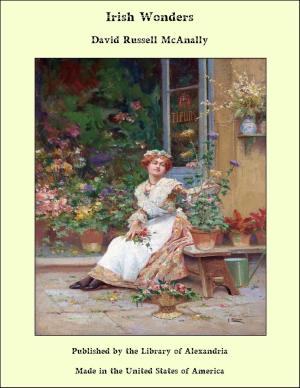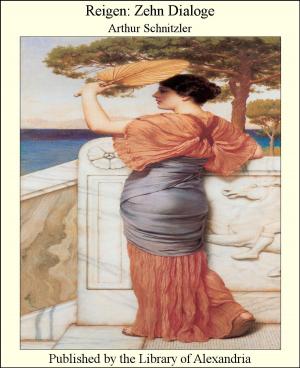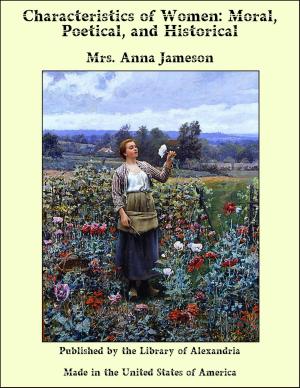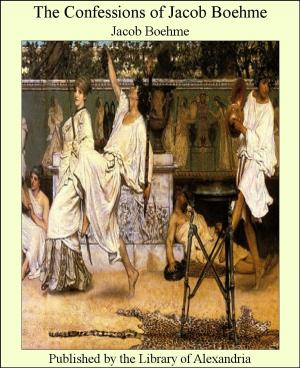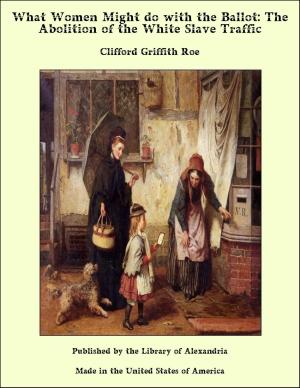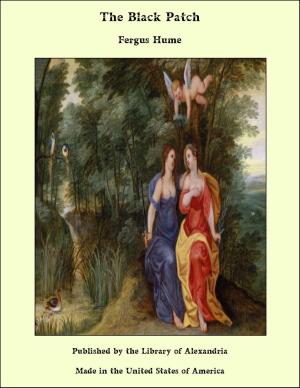The Chronicle of Jocelin of Brakelond: A Picture of Monastic Life in the Days of Abbot Samson
Nonfiction, Religion & Spirituality, New Age, History, Fiction & Literature| Author: | Jocelin de Brakelond | ISBN: | 9781465506085 |
| Publisher: | Library of Alexandria | Publication: | March 8, 2015 |
| Imprint: | Language: | English |
| Author: | Jocelin de Brakelond |
| ISBN: | 9781465506085 |
| Publisher: | Library of Alexandria |
| Publication: | March 8, 2015 |
| Imprint: | |
| Language: | English |
Samson and his Arch-Eulogist.—Abbot Samson of St. Edmundsbury and his biographer, Jocelin of Brakelond, undoubtedly owe such immortality as they possess to their introduction to the world at large by Thomas Carlyle. Learned historians and commentators of the past had made use of the dry facts of the Chronicle for their disquisitions and treatises; but none had recognized the human interest of Jocelin's narrative until the Sage of Chelsea seized upon it as evidence of that theory of Hero Worship on which he loved to insist. The whole of the seventeen chapters of Book II. of "Past and Present," published in 1843, are devoted to a study of Abbot Samson, and the lessons which Carlyle thought "our own poor century" could learn from him. From that day to this, Samson has been more or less a household word; and, as John Richard Green says in his "Stray Studies" (1876), "In the wandering gossipy pages of Jocelin of Brakelond the life of the twelfth century, so far as it could penetrate abbey walls, still glows distinct for us round the figure of the shrewd, practical, kindly, imperious abbot who looks out, a little travestied perhaps, from the pages of Mr. Carlyle." The Chronicle.—Mr. Green Further says:—"By a rare accident the figure of the silent, industrious Norfolk monk, who at the close of Henry the Second's reign suddenly found himself ruler of the wealthiest, if not the greatest, of English abbeys, starts out distinct from the dim canvas of the annals of his house. Annals indeed in any strict sense St. Edmund's has none; no national chronicle was ever penned in its scriptorium such as that which flings lustre round its rival, St. Albans; nor is even a record of its purely monastic life preserved such as that which gives a local and ecclesiastical interest to its rival of Glastonbury. One book alone the abbey has given us, but that one book is worth a thousand chronicles
Samson and his Arch-Eulogist.—Abbot Samson of St. Edmundsbury and his biographer, Jocelin of Brakelond, undoubtedly owe such immortality as they possess to their introduction to the world at large by Thomas Carlyle. Learned historians and commentators of the past had made use of the dry facts of the Chronicle for their disquisitions and treatises; but none had recognized the human interest of Jocelin's narrative until the Sage of Chelsea seized upon it as evidence of that theory of Hero Worship on which he loved to insist. The whole of the seventeen chapters of Book II. of "Past and Present," published in 1843, are devoted to a study of Abbot Samson, and the lessons which Carlyle thought "our own poor century" could learn from him. From that day to this, Samson has been more or less a household word; and, as John Richard Green says in his "Stray Studies" (1876), "In the wandering gossipy pages of Jocelin of Brakelond the life of the twelfth century, so far as it could penetrate abbey walls, still glows distinct for us round the figure of the shrewd, practical, kindly, imperious abbot who looks out, a little travestied perhaps, from the pages of Mr. Carlyle." The Chronicle.—Mr. Green Further says:—"By a rare accident the figure of the silent, industrious Norfolk monk, who at the close of Henry the Second's reign suddenly found himself ruler of the wealthiest, if not the greatest, of English abbeys, starts out distinct from the dim canvas of the annals of his house. Annals indeed in any strict sense St. Edmund's has none; no national chronicle was ever penned in its scriptorium such as that which flings lustre round its rival, St. Albans; nor is even a record of its purely monastic life preserved such as that which gives a local and ecclesiastical interest to its rival of Glastonbury. One book alone the abbey has given us, but that one book is worth a thousand chronicles
